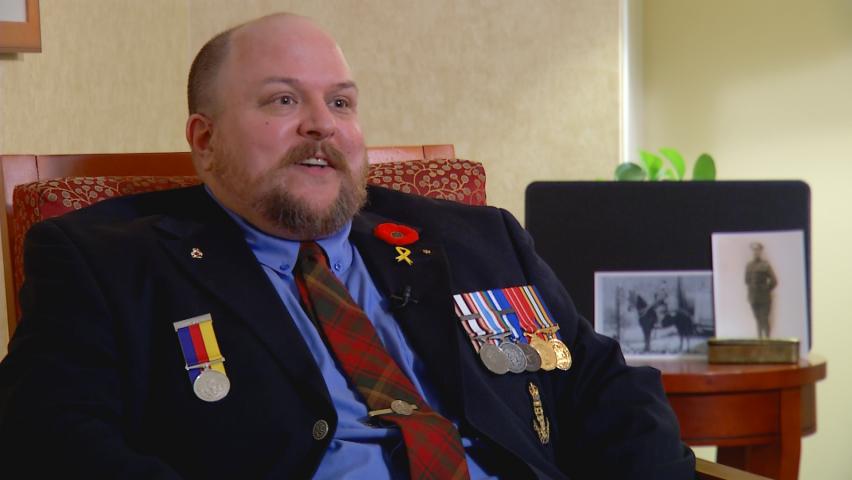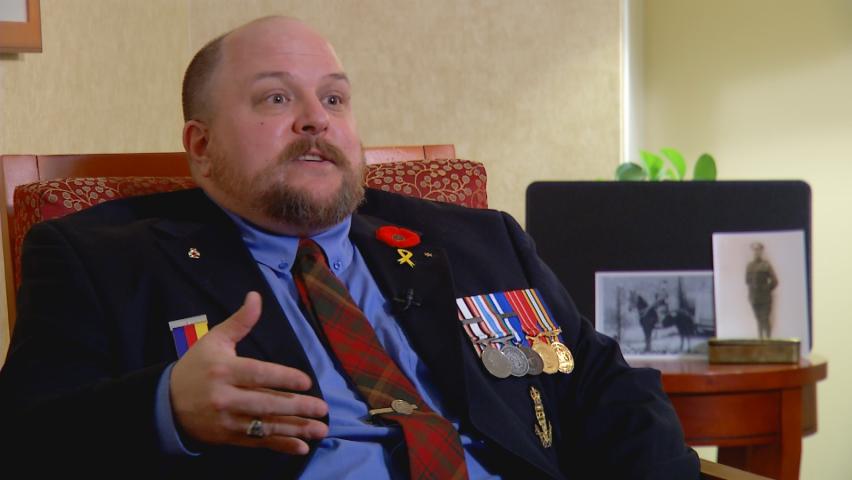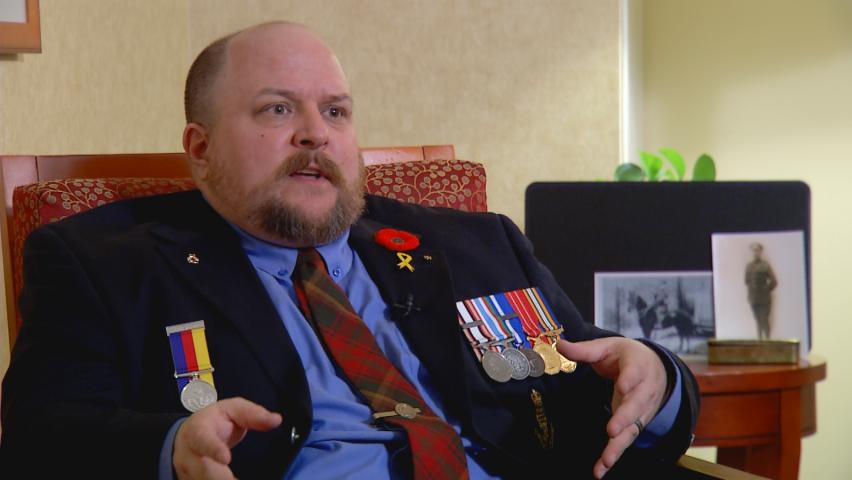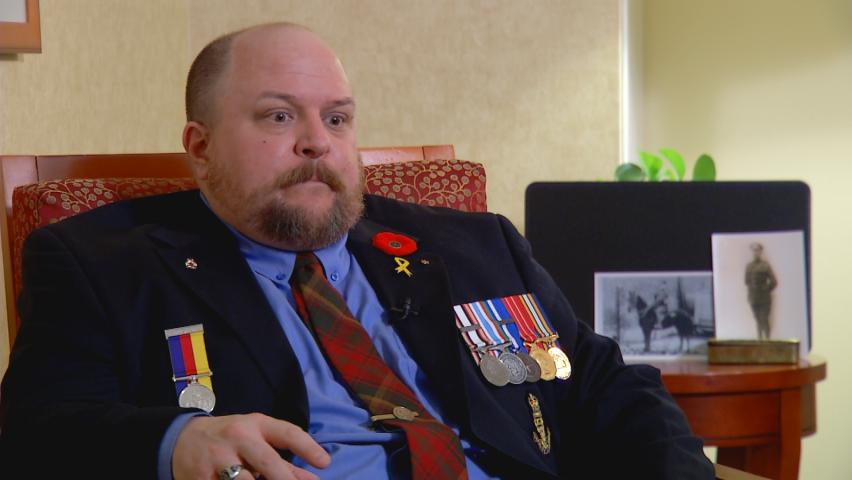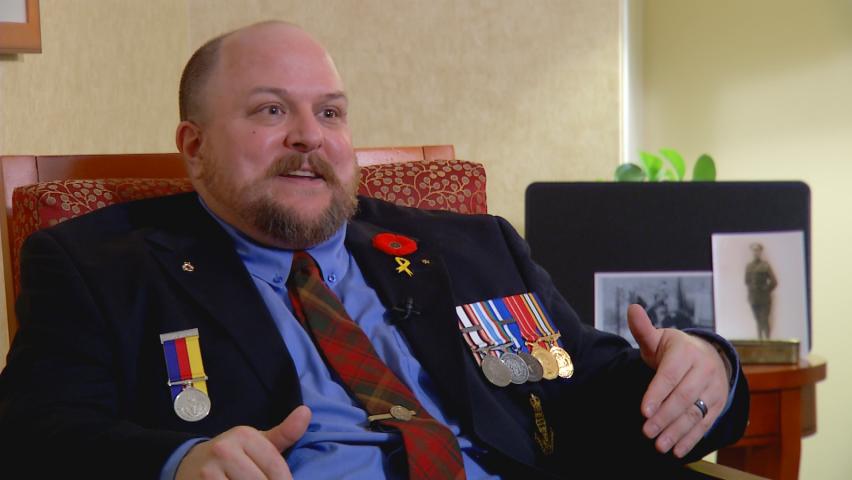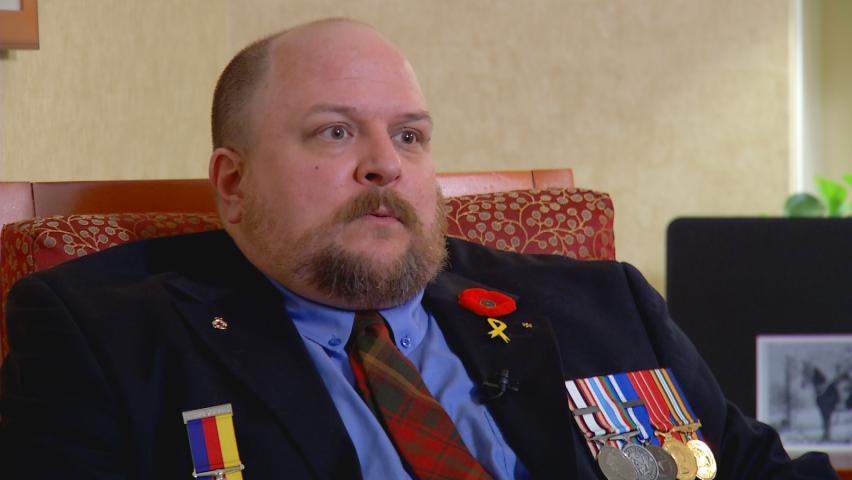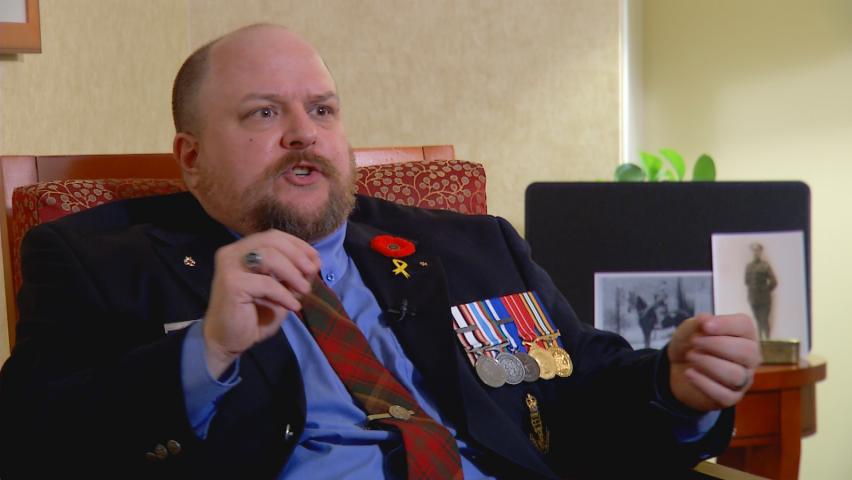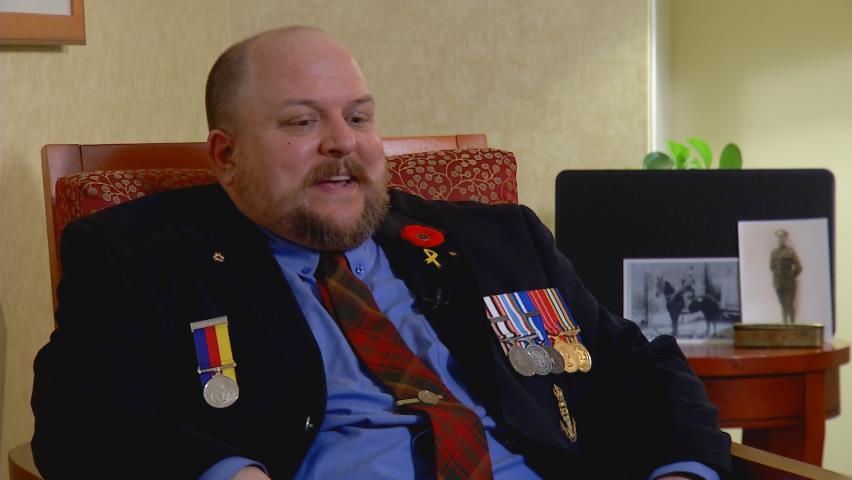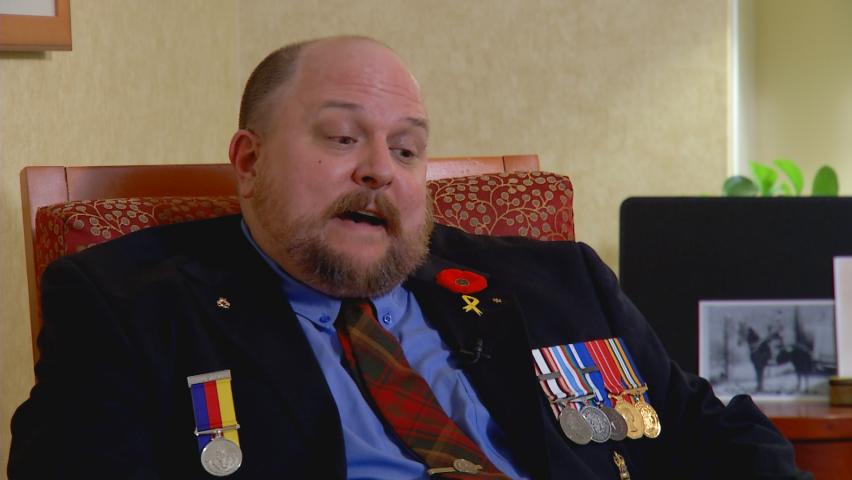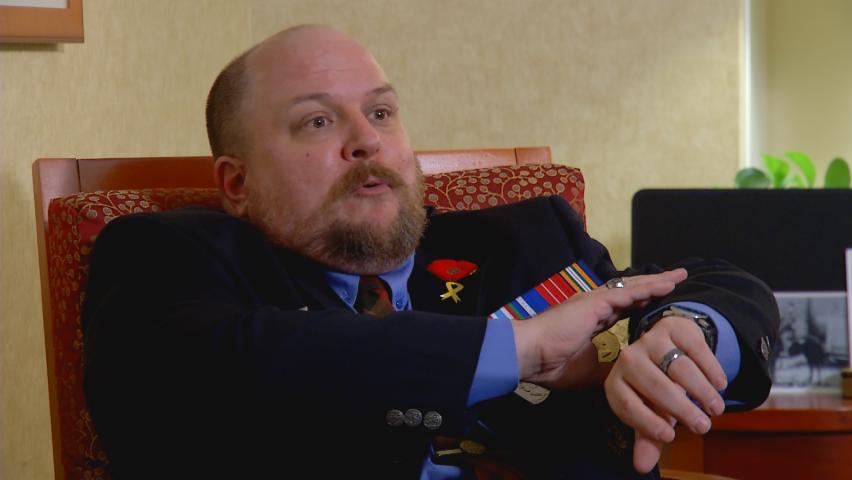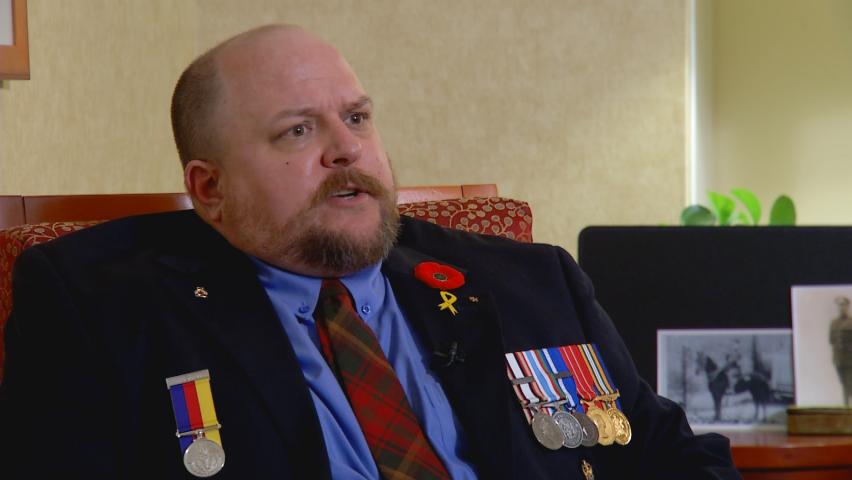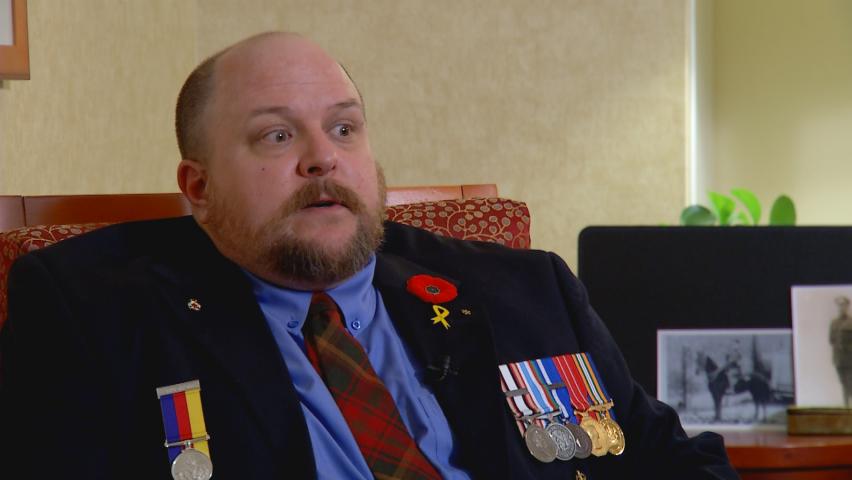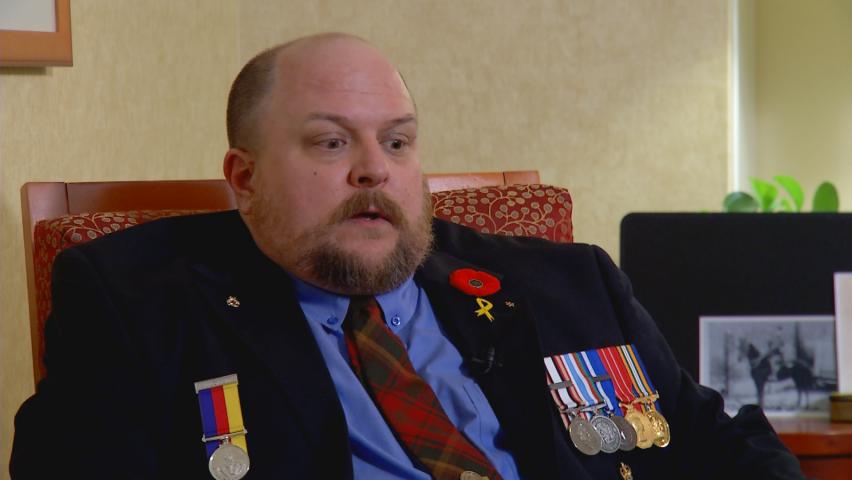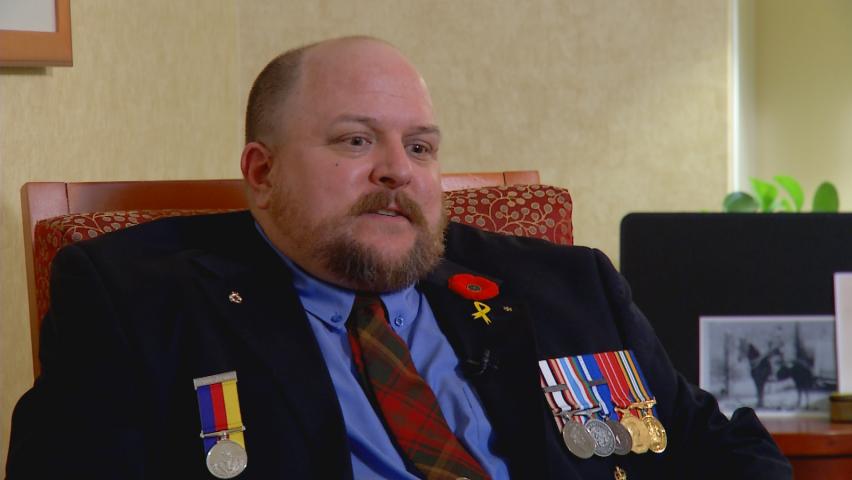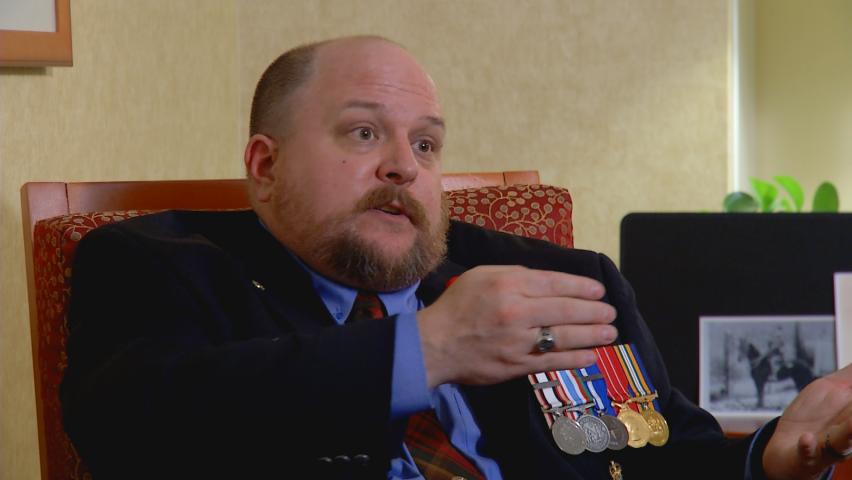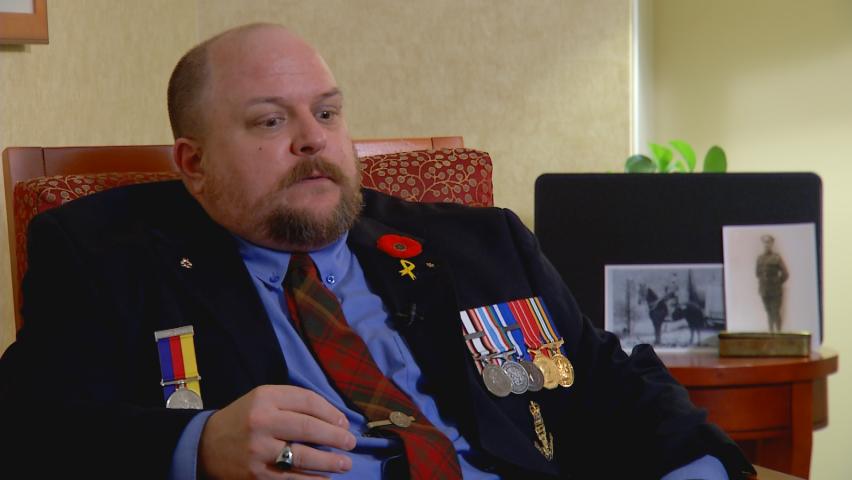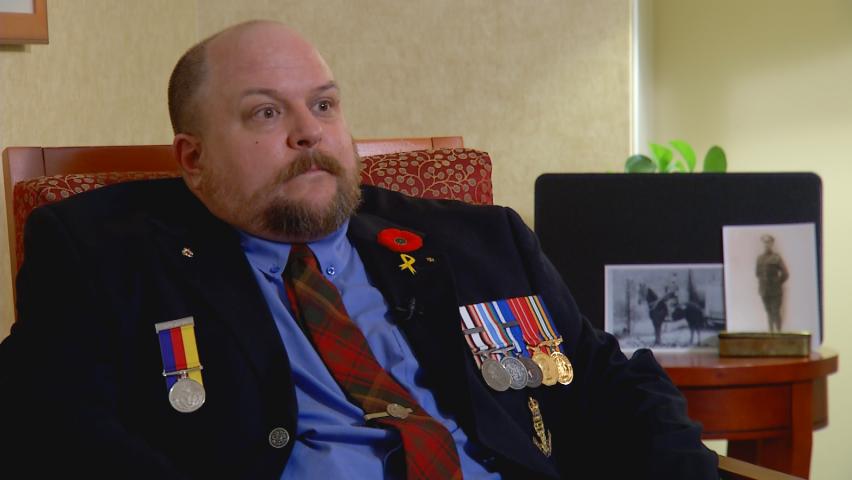Our first month in theatre in Bosnia my platoon
was selected for guard duty in the Banja Luka
Metal factory which was a different area of
operations than where the Canadians were operating.
It was the British main base and they wanted a
guard platoon. And it was Canada contingents
turn to provide a guard so we were there
to begin with. That first month was very much
in the army side of things fairly boring,
fairly blasé guard duty.
Someone has to do it, it has to be done but it
was not, we were all itching to get out and
start patrols and it was when we started
patrolling that we realized, you know,
that guard duty wasn’t so bad.
When you’re going down roads and you have
to make sure there’s no mines;
having to see that destruction, to see the
rampant decay of the country.
The core was rotten and it had been and
people were taking advantage of the local
Bosnians and there were companies coming
in from Europe that were using them
to build furniture. They would have these guys
hand carve wood and then they would
sell them for ten times the cost back in
Europe but they would pay the workers
pennies to do it there.
And you had to see this infrastructure.
The mafia was making big inroads in to taking
over the economy and driving the politics
of the place. And there was a vacuum of power
obviously when the country fell apart.
With that, you can’t imagine just the amount
of things that happened.
There was a celebratory gunfire one night,
we got called out because of the gunfire going off.
There was a wedding, everyone had drinks and
they started shooting AKA 47’s in the air.
Well, what goes up must come down and we
ended up getting an injured lady we had to take
to the hospital, the local government hospital
which is very underfed, under provided
with medicines, with trained personnel.
The families would have to go in and look after
their kin in the hospital, bring them medicine
if they needed it, bring them, you know,
wash their hair, wash them in the hospital bed,
there was no infrastructure in place to
do any of that. And one of the interpreters had
been involved in a roll over.
A Canadian vehicle had rolled off a mountain side.
She was injured, she had to be looked after by
her own family in the hospital because there
was no provisions for care.
And you kind of think about that and you know,
you’re worried about accidents,
you’re worried about vehicle problems.
You’re driving down very narrow roads
where the rule of law is very much missing.
There is no traffic regulations.
There is no insurance. There is no nothing so
people see people dying all the time.
Life becomes cheap and it doesn’t have the
same impact where in Canada we live
fairly long lives, we have a pretty rich life.
You can make it through all of those things but
when you see things return to more primal state
you can’t help but be affected by it.
Coming home and having to deal with the
mundane after is very difficult.
An example, after coming home from Bosnia
I went to work in Crosstown Chrysler in Edmonton,
it was a dealership there.
And I was working with the service manager,
a friend of mine and I was helping organize
the tower, making sure the vehicles coming in
and out of the shop were being looked at.
And this guy came in and he made a big fuss
over his a/c wasn’t working all the time and
for me it was so hard not to say anything
because you’re a/c doesn’t work,
at least you got running water.
You’ve got all those things.
For him it was the end of the world,
for me it was a very minor inconvenience but
your perception changes when you’re over
there and when you experience these things
and I think the biggest gift we can get from
these deployments is that perception change
where people just realize how lucky
we are here in Canada.



